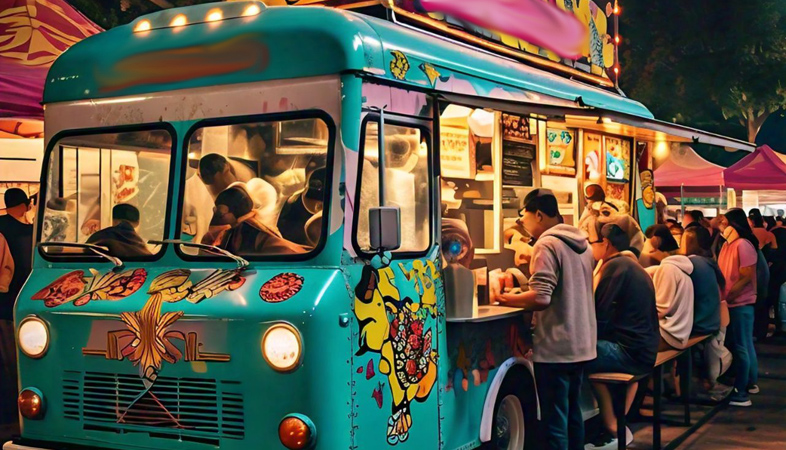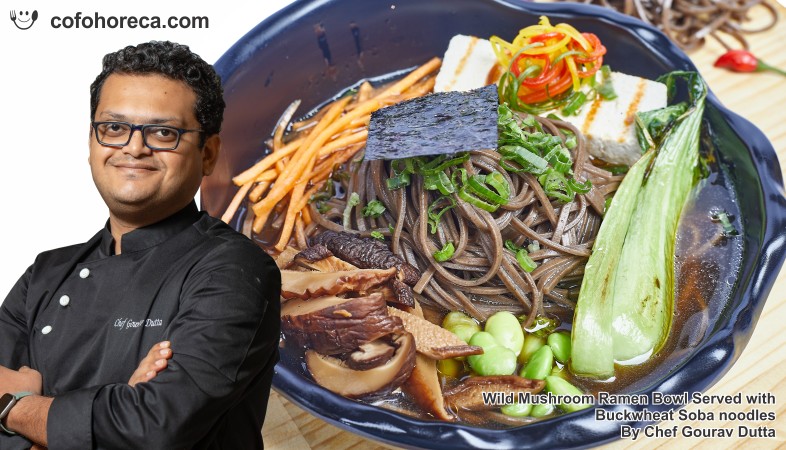Exploring the Role of Food Trucks in the Restaurant Ecosystem
The rise of food trucks reflects changing consumer preferences, economic factors, and an increasing appetite for diverse culinary experiences.
Food trucks have emerged as a significant force within the
restaurant ecosystem, reshaping how food is prepared, served, and enjoyed. This
mobile culinary phenomenon has not only expanded dining options for consumers
but has also introduced a new level of flexibility and creativity to the food
industry. The rise of food trucks reflects changing consumer preferences,
economic factors, and an increasing appetite for diverse culinary experiences.
One of the most notable aspects of food trucks is their ability to offer a wide variety of cuisines in a casual setting. From gourmet burgers and artisan tacos to vegan delicacies and international street food, food trucks cater to a diverse range of tastes. This variety appeals to consumers who seek unique dining experiences and want to explore different flavors without the commitment of a full sit-down meal. Food trucks often serve as a platform for chefs to experiment with innovative dishes, allowing them to showcase their culinary creativity while keeping costs relatively low.
The flexibility of food trucks also provides a significant advantage in the restaurant ecosystem. Unlike traditional brick-and-mortar establishments, food trucks have the mobility to operate in various locations, adapting to the ebb and flow of consumer demand. This adaptability allows food truck operators to target busy urban areas, local events, and festivals, where foot traffic is high. By positioning themselves strategically, food trucks can maximize their visibility and reach a larger audience, effectively tapping into markets that may be underserved by conventional restaurants.
Moreover, food trucks often have lower overhead costs compared to traditional restaurants. With expenses related to rent, utilities, and staff being significantly reduced, entrepreneurs can enter the food industry with a more manageable financial burden. This accessibility has led to an explosion of food truck startups, fostering a sense of entrepreneurship and innovation. Many chefs and culinary enthusiasts have taken the leap to launch their own food trucks, allowing them to bring their culinary visions to life without the constraints of a traditional restaurant setup.
The rise of food trucks has also encouraged collaboration within the restaurant ecosystem. Many food trucks partner with local businesses, breweries, and events to create a symbiotic relationship that benefits all parties involved. By aligning themselves with other local enterprises, food trucks can enhance their visibility and customer base while contributing to the overall vibrancy of the community. This collaborative spirit fosters a sense of community among food vendors and strengthens the local food scene.
Social media has played a crucial role in the success of food trucks, allowing them to build a loyal following and engage with customers directly. Platforms like Instagram and Twitter enable food truck operators to share their locations, menu updates, and behind-the-scenes glimpses of their culinary creations. This direct communication creates a sense of connection with customers, encouraging them to visit the truck and share their experiences online. The viral nature of social media can lead to food trucks gaining significant traction in a relatively short period, allowing them to become well-known within their communities.
Food trucks are also pivotal in promoting sustainability and supporting local food systems. Many food truck operators prioritize sourcing ingredients from local farmers and producers, thereby reducing their carbon footprint and supporting the regional economy. This commitment to sustainability resonates with consumers who are increasingly conscious of their food choices and the environmental impact of their consumption habits. By championing local sourcing and environmentally friendly practices, food trucks contribute to a more sustainable food ecosystem.
Despite their many advantages, food trucks face challenges in the competitive restaurant landscape. Regulatory hurdles, such as permits and health inspections, can vary significantly from one location to another, creating obstacles for operators. Additionally, food trucks often contend with unpredictable weather and limited access to essential resources, such as water and electricity, which can impact their operations. Nonetheless, the resilience and adaptability of food truck operators have allowed them to navigate these challenges successfully.
As food trucks continue to evolve, they are increasingly becoming an integral part of the culinary landscape. They provide not only diverse and innovative dining options but also a platform for aspiring chefs and entrepreneurs to make their mark in the food industry. The role of food trucks in the restaurant ecosystem extends beyond mere convenience; they foster creativity, collaboration, and community engagement.
Food trucks have become a vital component of the restaurant ecosystem, redefining how food is accessed and enjoyed. Their ability to offer diverse culinary experiences, operate with flexibility, and promote sustainability makes them a significant player in the modern food landscape. As they continue to innovate and adapt to consumer preferences, food trucks are poised to remain a beloved and essential part of the dining experience for years to come.
.png)




























